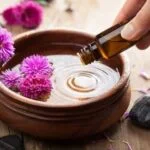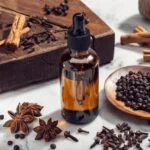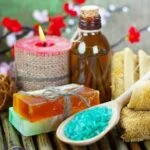Are you considering getting a massage but unsure of which type to choose? Aromatherapy massage vs Thai massage is a common dilemma for many individuals seeking relaxation and therapeutic benefits. Both forms of massage offer unique advantages that cater to different needs and preferences. In this article, we will explore the benefits of both aromatherapy and Thai massage, as well as provide insight into their origins and techniques.
Aromatherapy massage involves the use of essential oils derived from plants to enhance the benefits of traditional massage therapy. The practice of aromatherapy has been around for centuries and has been used to promote physical and mental well-being. On the other hand, Thai massage is an ancient healing technique that combines acupressure, yoga-like positions, and passive stretching to alleviate muscle tension and improve energy flow. Both types of massage offer distinct therapeutic effects that contribute to overall wellness.
As we delve deeper into the differences between aromatherapy and Thai massage, we will explore how each technique varies in terms of pressure, movement, and specific methods used in treatment. Additionally, we will discuss the physical and mental benefits associated with each type of massage, including stress relief, improved circulation, flexibility, relaxation, and energy flow enhancement. Ultimately, understanding these differences will help individuals make an informed decision on which type of massage best suits their needs.
Aromatherapy Massage
In aromatherapy massage, essential oils are carefully selected based on their specific properties and therapeutic benefits. These oils are then diluted in a carrier oil and applied to the skin during the massage. Popular essential oils used in aromatherapy massage include lavender for relaxation, peppermint for invigoration, and eucalyptus for respiratory support.
The Benefits of Aromatherapy Massage
- Stress relief: The gentle manipulation of muscles combined with the calming effect of essential oils can help reduce stress and anxiety.
- Relaxation: Aromatherapy massage can induce a sense of deep relaxation, making it an ideal treatment for those looking to unwind and rejuvenate.
- Improved mood: Certain essential oils have mood-boosting properties, which can uplift spirits and enhance overall emotional well-being.
When comparing aromatherapy massage vs Thai massage, individuals may opt for aromatherapy if they are seeking a more gentle and soothing experience that focuses on relaxation and emotional wellness. The use of essential oils adds an extra dimension to the massage by promoting physical and mental healing through natural scents and therapeutic properties.
Thai Massage
The practitioner uses their hands, feet, elbows, and knees to apply pressure to the recipient’s body during a Thai massage session. The recipient is also stretched into various yoga-like positions to improve flexibility and increase energy flow throughout the body. Unlike Aromatherapy massage that primarily focuses on using essential oils for relaxation purposes, Thai massage places an emphasis on physical manipulation for therapeutic benefits.
Some key techniques used in Thai massage include:
- Sen lines stimulation: The masseuse stimulates important points along the body’s energy pathways known as “sen lines,” which are similar to the meridians in traditional Chinese medicine.
- Assisted stretching: Recipients are guided into a series of passive yoga stretches that can help improve flexibility and relieve muscle tension.
- Compression: Firm pressure is applied to specific points on the body to release muscle tension and promote relaxation.
When comparing aromatherapy massage vs Thai massage, it is important to consider whether you prefer a more passive experience with essential oil scents or a more active approach involving stretching and direct body manipulation. Both types of massages offer unique benefits that cater to different wellness preferences.
Aromatherapy vs Thai Massage Techniques
When it comes to the techniques used in aromatherapy massage vs Thai massage, there are distinct differences that set them apart. Aromatherapy massage primarily involves the use of essential oils, which are incorporated into the massage through the therapist’s hands. The oils are carefully selected based on their therapeutic properties and are often applied with long, sweeping strokes to promote relaxation and stress relief.
In contrast, Thai massage is known for its unique combination of stretching, acupressure, and yoga-like positions. Unlike aromatherapy massage, Thai massage is typically performed on a padded mat on the floor, and clients remain fully clothed throughout the treatment. The therapist uses various techniques to apply pressure to specific points on the body while also guiding the client through assisted stretching movements.
Pressure and Movement
In terms of pressure, aromatherapy massage often involves gentle to moderate pressure, making it an ideal choice for individuals who prefer a more soothing and relaxing experience. Thai massage, on the other hand, can involve varying degrees of pressure depending on the client’s needs and preferences. Additionally, Thai massage incorporates rhythmic compressions and deep stretches to improve flexibility and release tension in the muscles.
Differences in Technique
Overall, aromatherapy massage focuses primarily on promoting relaxation and relieving stress through the use of essential oils and gentle manipulations of the soft tissues. In contrast, Thai massage emphasizes improving energy flow and flexibility by utilizing a combination of passive stretching and acupressure techniques. Both types of massage offer unique benefits based on their specific techniques and can cater to different individual needs.
As you consider whether aromatherapy or Thai massage is right for you, understanding these key differences in technique can help you make an informed decision based on your preferences for pressure, movement, and overall desired outcome from your massage experience.
Benefits of Aromatherapy Massage
Aromatherapy massage is a popular form of alternative therapy that combines the use of essential oils with the benefits of massage. This type of massage has been used for centuries to promote relaxation, relieve stress, and improve overall well-being. The combination of gentle, soothing massage techniques and the aromatic properties of essential oils can provide numerous physical and mental benefits.
Physical Benefits
One of the key physical benefits of aromatherapy massage is its ability to relax and soothe muscles. The application of gentle pressure during the massage can help release tension and tightness in the body, promoting improved flexibility and range of motion. Additionally, the use of specific essential oils such as lavender or eucalyptus can help reduce inflammation, ease muscle pain, and improve circulation.
Mental Benefits
In addition to its physical advantages, aromatherapy massage also offers several mental health benefits. The calming and relaxing effects of essential oils can help reduce stress, anxiety, and promote a sense of overall well-being. The soothing scents can also have mood-boosting effects, helping to alleviate symptoms of depression and promoting better sleep quality.
Stress Relief
Aromatherapy massage is especially effective at providing relief from stress and tension. The combination of gentle touch, soothing scents, and calming environment works together to create a deeply relaxing experience. The release of stress during the massage can lead to an improved mood, decreased anxiety levels, and an overall sense of relaxation.
In comparison with other forms of massage such as Thai massage that focuses on stretching and pressure points, aromatherapy massage offers a unique approach that concentrates on both physical and mental wellness through aroma-infused touch therapy.
Benefits of Thai Massage
Thai massage, also known as “Nuad Boran” in its traditional form, is a type of massage that originated in Thailand over 2,500 years ago. This ancient healing practice incorporates elements of yoga, acupressure, and Ayurveda. One of the unique benefits of Thai massage is its ability to improve flexibility. The therapist uses a combination of gentle stretches and deep tissue massage to help loosen muscles and release tension, ultimately increasing the recipient’s range of motion.
In addition to improved flexibility, Thai massage is also known for its positive effects on circulation. During a session, the therapist applies rhythmic pressure along the body’s energy lines or “sen.” This action can enhance blood flow and promote better circulation throughout the body. As a result, recipients may experience heightened energy levels and an overall sense of vitality.
Furthermore, Thai massage is believed to facilitate the proper flow of energy throughout the body. In traditional Thai medicine, it is thought that blockages in the body’s energy pathways can lead to discomfort or illness. By applying pressure to specific points and using stretching techniques, Thai massage aims to remove these blockages and restore balance to the body’s energy system.
| Benefit | Description |
|---|---|
| Improved Flexibility | Thai massage incorporates gentle stretching and deep tissue techniques to increase range of motion. |
| Enhanced Circulation | Rhythmic pressure applied during Thai massage can improve blood flow throughout the body. |
| Better Energy Flow | The therapy aims to remove energy blockages through specific techniques promoting balance within the body. |
These unique benefits make Thai massage an appealing option for individuals looking to improve their physical well-being while also seeking relaxation and stress relief. When considering whether aromatherapy massage vs thai massage is right for you, it’s important to take into account your specific needs and wellness goals.
Choosing the Right Massage for You
When it comes to choosing the right type of massage for your individual needs and preferences, it’s important to consider what you are looking for in a massage experience. Both aromatherapy massage and Thai massage offer unique benefits, so determining which one is best suited for you can depend on various factors such as your physical condition, personal preferences, and desired outcomes.
If you’re looking for a deeply relaxing experience that not only helps alleviate stress but also has potential health benefits, an aromatherapy massage may be the right choice for you. The use of essential oils in aromatherapy massage can promote relaxation, improve mood, and even help with specific ailments such as headaches or muscle pain. The scents used in aromatherapy can also enhance the overall therapeutic effect of the massage.
On the other hand, if you’re seeking a more invigorating and energizing experience that focuses on improving flexibility and releasing tension in your body, then a Thai massage might be the better option. Thai massage incorporates elements of yoga-like stretching, acupressure, and deep tissue massage to help align the energies of the body and provide a sense of rejuvenation. It’s also known for its ability to increase flexibility, improve circulation, and reduce muscle soreness.
Ultimately, your choice between aromatherapy massage vs Thai massage will depend on whether you prioritize relaxation and mental well-being or physical flexibility and energy flow. It’s also worth considering any specific health concerns or medical conditions you may have when deciding which type of massage is best for you.
| Aromatherapy Massage | Thai Massage |
|---|---|
| Promotes relaxation through the use of essential oils | Focuses on improving flexibility through stretching techniques |
| Aids in reducing stress and anxiety | Enhances energy flow throughout the body |
| Can help alleviate specific ailments such as headaches or muscle pain | Improves circulation and reduces muscle soreness |
Conclusion
In conclusion, both aromatherapy massage and Thai massage offer unique benefits that cater to individual preferences and needs. Aromatherapy massage uses essential oils to promote relaxation and stress relief, while Thai massage focuses on stretching and yoga-like positions to improve flexibility and energy flow. The techniques used in each type of massage differ in terms of pressure and movement, providing distinct experiences for those seeking therapeutic touch.
When deciding between aromatherapy massage vs Thai massage, it is important to consider personal wellness goals and preferences. Aromatherapy massage may be preferred for those seeking mental relaxation and emotional balance, while Thai massage is ideal for individuals looking to improve physical flexibility, circulation, and energy levels. Both types of massage have their own set of benefits and can be beneficial in promoting overall well-being.
Ultimately, the best way to determine which type of massage is preferred is by trying both aromatherapy and Thai massage. Each individual’s experience with these therapies will be unique, and experimenting with different techniques will allow for a better understanding of personal preferences. Whether it’s the calming effects of aromatherapy or the invigorating benefits of Thai massage, exploring both options can lead to finding the perfect match for one’s specific needs.
Frequently Asked Questions
What Is the Difference Between Thai Traditional Massage and Aromatherapy Massage?
Thai traditional massage and aromatherapy massage differ in their techniques and focus. Thai massage involves stretching and deep pressure on specific points, while aromatherapy massage uses essential oils for relaxation and healing.
Which Is Better Thai Massage or Oil Massage?
The choice between Thai massage and oil massage depends on personal preference and the desired outcome. Thai massage is beneficial for improving flexibility and energy flow, while oil massage is great for relaxation and stress relief.
What Is the Most Pleasurable Type of Massage?
The most pleasurable type of massage varies from person to person. Some may find deep tissue massage pleasurable for its tension-relieving effects, while others may enjoy the soothing experience of a hot stone massage. It ultimately depends on individual preferences and needs.

Are you looking for a natural way to improve your health and wellbeing?
If so, aromatherapy may be the answer for you.





